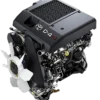Exploring how modern technologies like direct injection, variable valve timing, cylinder deactivation, and hybrid systems are changing the landscape of automotive engineering
Revolutionizing Automotive Engineering: Exploring how modern technologies like direct injection, variable valve timing, cylinder deactivation, and hybrid systems are changing the landscape of automotive engineering.
In the fast-paced world of automotive engineering, innovation is the name of the game. As technology continues to advance at breakneck speed, cars are undergoing a transformation unlike anything seen before. From improved fuel efficiency to enhanced performance, modern technologies such as direct injection, variable valve timing, cylinder deactivation, and hybrid systems are reshaping the landscape of automotive engineering. Best auto motors
Direct Injection:
Direct injection technology has revolutionized the way fuel is delivered to an engine’s combustion chamber. Unlike traditional port fuel injection systems, which spray fuel into the intake manifold, direct injection systems deliver fuel directly into the combustion chamber at high pressure. This allows for more precise control over fuel delivery, resulting in improved fuel efficiency and reduced emissions. Direct injection also enables engines to produce more power while using less fuel, making it a win-win for both drivers and the environment.
Variable Valve Timing (VVT):
Variable valve timing is another game-changing technology that is transforming the automotive industry. VVT systems adjust the timing of a engine’s intake and exhaust valves to optimize performance under different driving conditions. By varying the timing of the valves, VVT systems can improve power output, increase fuel efficiency, and reduce emissions. This technology allows engines to operate more efficiently across a wider range of speeds and loads, providing drivers with a smoother, more responsive driving experience.
Cylinder Deactivation:
Cylinder deactivation technology is designed to improve fuel efficiency by shutting off select cylinders when they are not needed. By deactivating cylinders during light-load driving conditions, such as highway cruising, engines can operate more efficiently and consume less fuel. This technology allows vehicles to maintain power and performance when needed, while also reducing fuel consumption and emissions during less demanding driving scenarios. Cylinder deactivation systems are becoming increasingly common in modern engines, helping automakers meet stringent fuel economy and emissions standards without sacrificing performance.
Hybrid Systems:
Hybrid technology represents the pinnacle of automotive engineering innovation, combining the benefits of traditional gasoline engines with electric propulsion systems. Hybrid vehicles use a combination of an internal combustion engine and one or more electric motors to power the vehicle. By seamlessly switching between the two power sources, hybrid vehicles can achieve significant improvements in fuel efficiency and emissions compared to conventional gasoline-powered vehicles. In addition to reducing fuel consumption and emissions, hybrid systems also offer other benefits such as regenerative braking, which captures and stores energy normally lost during braking, and electric-only driving modes for zero-emission driving in urban areas.
Conclusion:
In conclusion, modern technologies such as direct injection, variable valve timing, cylinder deactivation, and hybrid systems are revolutionizing the automotive industry. These technologies are not only improving fuel efficiency and reducing emissions, but they are also enhancing performance, reliability, and driving experience. As automakers continue to push the boundaries of innovation, we can expect to see even more groundbreaking technologies emerge in the years to come, further changing the landscape of automotive engineering for the better.








